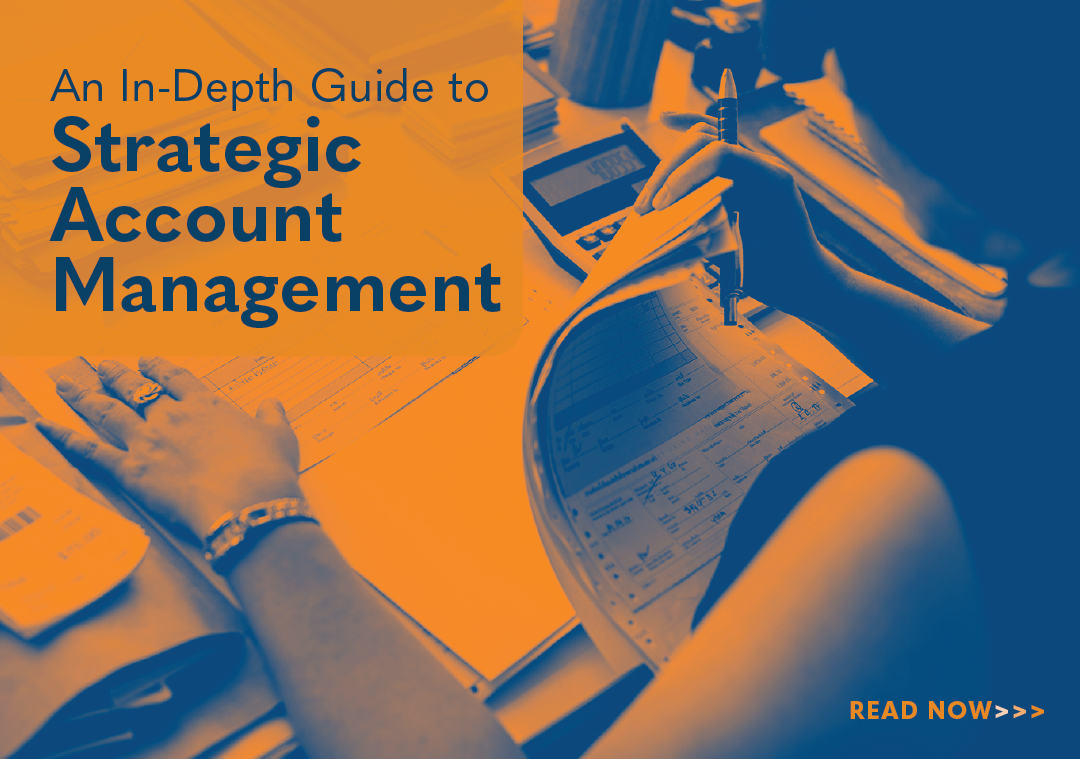The Importance of Preparation in Selling

In sales, preparation is the steps taken to understand prospects and clients at each stage of the sales process. From prospecting through account management, it’s being informed of their personnel, their processes, their strengths, and weaknesses. Regardless the stage of your relationship, this starts before making contact. Then, it’s utilizing this knowledge to your advantage.
The more we know about our clients, the more we can solve their problems and help them succeed. Yet, research in LinkedIn shows 70 percent of B2B buyers think sales reps are not adequately prepared. They lack pre-call planning and research. These deficiencies can hinder selling or drive buyers away. Here, then, are some keys to preparation in selling, including understanding the prospect or client’s industry, account, and people:
Industry Prep
Central to preparation is knowing their industry. It’s not enough to know a company makes widgets. It’s understanding what widgets are, what they do, and how they affect their buyers. Too many salespeople think the art of selling is homogenous. No matter the industry or account, they can just jump on a call and ask questions. Top sellers know this is a fishing expedition. It’s a hallmark of “typical” salespeople and sales stereotypes. And today’s better-informed buyers will see right through.
Industry prep means knowing healthcare is different from accounting. Construction equipment is different from SaaS. The people, personalities, products, and processes are unique. Before reaching out, look up pertinent information about their industry. Consider the following:
- Market share
- Competition
- National news
- Financial news
Before taking a call or entering a meeting, know their place in the market. Are they among the industry elite, or is their share more specialized? Maybe their reputation exceeds their success. Perhaps they suffer from an outdated reputation or brand fatigue. Whatever the case, sellers must know where prospects and clients are before determining where they can go. And how to get them there.
No company exists in a vacuum. Their success is always seen in relation to others in their space. That’s why sellers should also know the industry leaders and why they are successful. Are they bigger and faster than your prospect? Maybe your client’s longstanding products are top sellers, but they can’t keep up production. This is essential to know in advance, and with the internet, it’s literally at your fingertips.
As part of your industry prep, be aware of national news. What challenges does their industry face? What are the key stories insiders are talking about? Seek out recent data or statistics. Consider the economic trends that affect their industry. Be aware of government regulations or potential bills and ordinances that can have an effect.
Account Prep
Today, HubSpot research shows 96 percent of prospects do their own research. And 71 percent prefer solo research over talking to sales professionals. This means that, from that start, buyers are prepared for sellers. Whether they are prospects or long-standing clients, they do not save their questions for sellers. And this continues throughout the sales process. Therefore, sellers must maximize the time they get.
All sales organizations qualify prospects. This helps determine their fitness and intent. It also assesses their budgets and timelines. However, preparation must go further, and it must continue through account management and relationship building. Things change. Sometimes quickly. Regardless of your relationship, buyers may not update you about their financial status. The more you know before a call, the better your questions.
Once you ascertain their status, preparation shifts to what you can offer and how you can help. This starts with a deeper understanding of the account. It’s preparing how your products and services can suit their changing needs. Consider the following:
- Company history
- Verticals
- Opportunities
- Challenges
Company history can reveal more than where they started and where they are. It can show the values important to decision makers. Are they family owned? Do they retain a sense of pride in their origins and community? From the start, sellers must offer more than products and services. Proper preparation leads to insights and shows you value partnerships over quotas.
Another key is demonstrating knowledge of their verticals. This includes their niche and audience. It’s knowing their brand and perception as well as their products and services. More than what they do, it’s what they provide. Financial services accounts not only offer retirement and investments. They provide peace of mind and a greater quality of life. Salespeople who demonstrate appreciation for their prospect and client’s values earn trust and form long-lasting relationships.
In addition, preparation is seeing potential. It’s knowing what a company has achieved and appreciating where they can go. This means recognizing the long-term possibilities of an account. Prospects may be local heroes or a regional success. A client might be a brand name. But top sellers do not only see what is. They see what can be. Even more, they have a plan to help prospects get there.
Challenges are another key to preparation. Rather than waiting for prospects or clients to tell you what they face, top sellers note deficiencies. They recognize limitations. Think of this from the prospect or client’s position. Sellers with the foresight to see problems before they affect business demonstrate commitment. They not only sell solutions. Instead, they’re trusted advisors who form partnerships and place the prospect’s interests alongside their own.
People Prep
Preparation includes the people you need to know, such as decision makers, gatekeepers, and influencers. In addition to who’s who, preparation should go into what drives and motivates them. Seek to learn as much as you can about their interests, both professional and personal. Top sellers know this information is vital to building rapport, generating trust, and establishing relationships. Proper people prep includes:
- Directories
- Social media
- Referrals
Directories, such as ZoomInfo, are great to determine who you must know. Salespeople should never make a call or enter a meeting without knowing something about each participant. This includes job title, length of tenure, and responsibilities. But proper preparation means seeing people as more than contacts. Top sellers note previous experience, where they worked, and what drives them.
Today, social media is an essential part of selling. According to HubSpot, 61 percent of organizations engaged in social selling report revenue growth. Also, sellers who use social selling close 40-50 percent more business. But social media should also be a critical part of preparation.
According to Insider Intelligence, nearly half of buyers worldwide use social media to connect with sellers. Of these, 69 percent share negative experiences on social media and review sites. These same buyers also post lukewarm or positive experiences.
This is vital information to know prior to engaging prospects. If your leading competitor’s top solution didn’t work, how is yours different? How can you customize a more complete solution to suit all their needs? Same with clients. If they post your new rollout is great but has some kinks, know this.
In B2B, LinkedIn is the most popular social site. According to statista.com, LinkedIn is used by 48 percent of B2B professionals. This eclipses other social sites, including Facebook (28 percent) and Instagram (15 percent).
Even a cursory glance at a prospect’s LinkedIn account can reveal their interests, both personal and professional. This provides critical icebreakers and talking points. If they once worked with your previous employer, you may have mutual contacts who can open doors. The same is true for clients. As their profile grows, so does their contact list. No matter the level of your relationship, it helps to know you both know Max, Sam, and Chris.
Referrals are key to maximizing social media. In addition to who they know, referrals can reveal insight into how they work. If a prospect’s easy-going personality is praised, sellers can tailor their approach in emails and calls. In addition, referrals can tell how prospects and clients affected the people they’ve worked with. These insights into their personalities and work ethics are essential to building, maintaining, and strengthening rapport.
In sales, preparation may not make or break a deal. However, it enables sellers to better connect with buyers. Rather than reacting, sellers can be proactive. It sets sellers up to offer value early in their sales process and carry it through to the close. Even more, it allows sellers to build relationships that lead to partnerships and long-term success. We hope this helps you better prepare for your next sales call or meeting.

- Account Planning (16)
- Awards (42)
- Client Testimonial (37)
- Personal Branding (21)
- Podcast (12)
- Research (77)
- Sales Career Development (90)
- Sales Coaching (165)
- Sales Consulting (141)
- Sales Culture (181)
- Sales Enablement (380)
- Sales Leadership (112)
- Sales Management (268)
- Sales Negotiation (11)
- Sales Prospecting (136)
- Sales Role-Playing (19)
- Sales Training (242)
- Selling Strategies (279)
- Soft Skills (78)
- Talent Management (101)
- Trusted Advisor (29)
- Virtual Selling (57)
- Webinar (13)




























